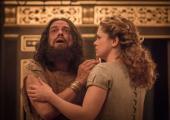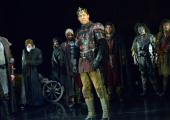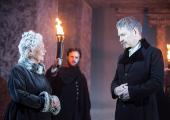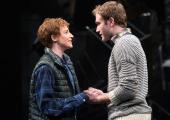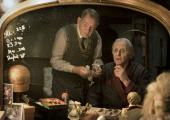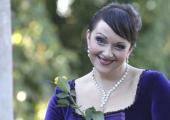Cymbeline, Sam Wanamaker Playhouse
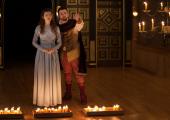
This anonymous production fails to exploit this extraordinary theatre
There’s a happy, cyclical logic to this first production of Cymbeline – Shakespeare’s late tragicomedy of love and jealousy – at the Globe’s Sam Wanamaker Playhouse. The first play Shakespeare wrote for the candle-lit, indoor Blackfriars Playhouse, Cymbeline was quite literally made for this space. How disappointing, then, that director Sam Yates proves so wilfully blind to the theatre’s unique spatial and dramatic possibilities, delivering a production that might charitably be called faithful, but which more often feels simply blank.


